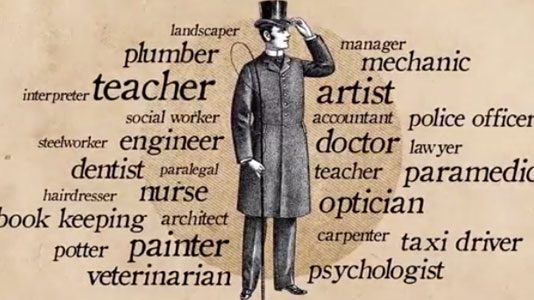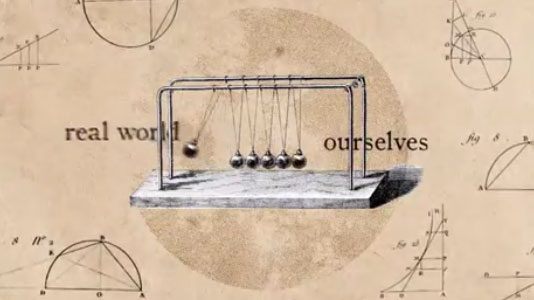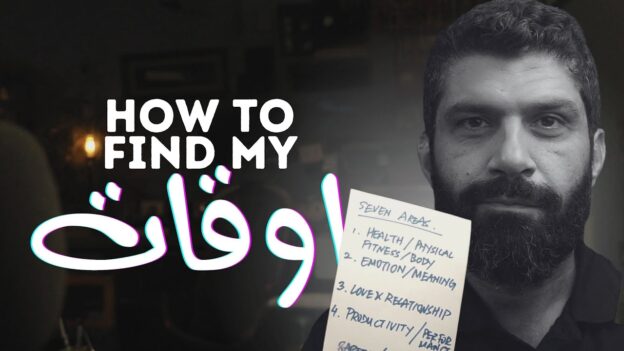Last year I had an interesting experience. I gave lectures and was invited to speak at different universities. I was talking to students on my main topic of interest: how to do work around things you love to do. I called it get paid to do what you would have paid to do.
I have talked about this topic everywhere, right? On the blog, with friends, with corporate workers and entrepreneurs. Everyone, me included, want to know the best ways to cultivate meaningful work in our lives.
But not students. They were simply not interested. I had to later change the topic to “why you should do what you love instead of run after money or prestige”.
It seems that it took five to six years of “on the job experience” for many of us to figure out that the boring job is what’s on offer. So an experienced worker would know the value of meaningful work.
Here are six ideas to help us find meaningful work, curated by the contemperory philosopher Alain De Botton. I think they do a great job of capturing the essence of doing work that is meaningful and fulfilling. Also note, these ideas apply to both types of work: a job at someone else’e business, or starting and running your own enterprise.
1. Being confused about career is perfectly normal.
We feel embarrassed that we are not sure about our choice of work. “We should be clear on what we want to do!” we tell ourselves.
Nonsense.
It is perfectly normal to feel confused about your choice of work.
A few hundred years ago, the average person trying to decide which work to get into had to pick from a healthy number of different trades: there were an estimated 2000 different trades back then. Now, there are more than half a million different options.

This is rightly called the paradox of choice: too much choice does give you analysis-paralysis.
So first calm yourself: confusion and fear is natural and normal: we need to manage them instead of deny their existence.
2. Self Awareness / Know Thyself
Most of us do not have a “passion” installed in us. We do not have a distinct, clear calling.
We do not know, really, about our own selves. A lot of people are trying to be someone they are not ready to become! This is because we are not aware of our own priorities and our own strengths.
This lack of self awareness ensures that we are unable to make an effective plan of action. And not having a plan puts us at mercy of others who do.
When I was in college for example, I knew I wanted to be “self employed” … that was the idea of my future self that I was willing to work for. I didn’t know I’d be trying out so many things and being the “crash test dummy” of business as such. And I guess that’s OK Alhumdulillah. That semblance of a plan enabled me to refuse job offers and other valid opportunities that were just not in line with the vision at that time.
How to start your self awareness journey?
- First stop thinking about “money”. We are trying to figure out a future self and our vision will probably be a bit blurry, and that’s OK. But the process must start: work backwards from that vision to get clues into your own preferences and inclinations.
- List down different things you love to do… and do not filter the list, don’t over analyze it, don’t apply logic to it yet. Just start writing. And within this list, you will find careers and possible professions emerge.
- A very important point is to remember that it will still be in the abstract, and that is where you need to match your hobbies, interests and passions with your available surroundings, resources, opportunities.
This sounds like a lot of work, right? You may feel, “I don’t have the luxury of time,” and that you need to decide quickly. That brings us to the third recommendation.
3. Think a lot.
If you were to buy a car, it would take you – easily – a week or more, just to decide which car to buy. Let alone hunt for it after you have decided.
We, really, should be OK with thinking a lot longer on our work. Months, even years of consistent thought is time well spent when it comes to figuring out your “customized” line of work.
This is incredible news actually. Work is after all the largest part of our lives, and we should not feel guilty of taking our time to figure it out.
It benefits us to start this process of as early as possible… but know that a lot of people don’t do this, and suffer for years because they didn’t sacrifise a few months. This is pretty common unfortunately: so you must be different and start “thinking” about your ideal work life now!
After you’ve thought up of things that you can do, make lists of hobbies and interests, it is time to:
4. Try Something
That is where your plan needs to collide with the real world.

In business, one of my favorite maxim of sorts is that your business plan doesn’t survive first contact with the customer!
That’s why we need to start “trying out” our ideas as soon as possible. And without feeling too vested in them. This approach of calm experimentation in itself requires practice (and is the protocol of superior beings after all).
Side note for the Startas: If you want to start a business, looking up what an MVP is, how to put together a business canvas instead of a business plan and how customer acquisition can be automated… you can check out the seminal book “The Lean Startup” which formalizes this experimentation in tech business.
Now I think I should warn you: this is not easy. This “trying out” part. Because this is “visible”. Others will judge you, pass comments, hold expectations, the whole nine yards.
I enrolled in a Masters program a few years back: I wanted to try out pursuing an academic path in Islamic Studies was for me. A few months later, before even the first semester finished, I was out. I realize that a lot of us would find that disturbing: why start something when you don’t finish it? Well, because it’s in the “try something” phase.
You need to make a mental distinction between “experiments” and “commitments”, right? But it is hard to do, especially harder to articulate that to your loved ones.
Again, remind yourself what you are doing here. This is not some random weekend project: this is you trying to figure out one of the biggest puzzles out there. Stakes are high. So relax and keep at it.
There are a few good options to help you “get data” and test out your assumptions.
You can:
- Intern at a possible place you may like. You want to open a food joint? Intern at a McDonald’s maybe? Want to see if being a journalist is your thing? Intern at a newsroom perhaps.
- Shadowing is another option. If you can’t intern for any reason, you can simply just “hang out” where people of your interest are. Ask permission if you have to, make friends if you can, and you will start collecting data on the work itself, and whether your assumptions about it were correct.
- Develop thicker skin by drawing mental distinctions. This helps you to try out other options (like admission in a Masters program only to drop out, or closing down a 5 year old running concern because “you are losing interest” etc)
5. Reflect on what makes people unhappy
From a business point of view, we have talked about this at length before: find a big enough problem to solve.
Think of yourself as the problem solver, and you are thinking like a true entrepreneur. Profits are by product of how efficiently you solved a problem.
An interesting method to do this is to again make a list of problems a person may face on a daily basis. How can you solve that problem? Even the big companies like Uber and Amazon and Google: they solved some pretty basic problems, and then they scaled it.
This step actually is quite fun: you get to match your interests and passions with the problems people face. Because here’s the deal: you won’t make money unless someone is being helped. The quicker you start thinking on those lines of helping others instead of “making tons of money”, the better you’d be at finding meaningful work in the long run, God willing.
We have talked before about treating work as “contribution”… and guess what, that is what work really is: a chance to serve.
And finally:
6. Be confident!
The world belongs to the bold. Period.
You take action because you are confident. And nothing happens till you take action.
We really have some wrong assumptions about how the world works. Many “jobs” out there, dream jobs and careers, are simply for those who have the confidence to ask and try for it.
Yet many of us believe that we need some “permission”, some “degree”, some “pedigree” to be able to do what others are doing. And here I get a chance to use my favorite word for the day: nonsense!
Observe and you will see how the apparently simple act of asking for it, showing up for it, working for it “allowed” the other to have “it”. Why can’t you have your dream job?
Remind yourself what are we really after here: we don’t want to work on something and regret it on our death beds. The world is waiting for you to make your move.
I have grappled with these ideas of finding meaningful work. And I have a small training on how you can “find your business”. We look at how we can uncover profitable opportunities within the overlap of our hobbies and contributing to others.
Alein De Botton explains the 6 ideas in his YouTube video. You can know more about him here. The above “cut up” is taken from this YouTube video.



